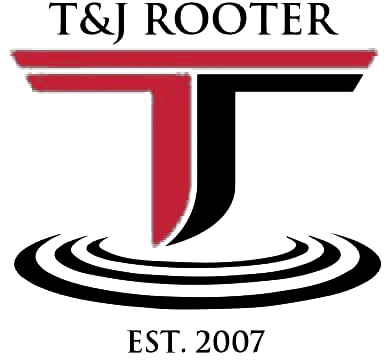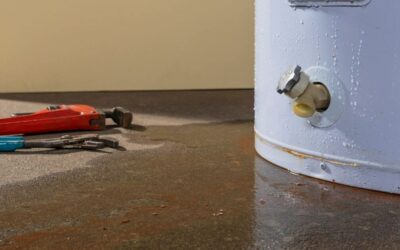It’s an age-old conundrum: you wake up, jump out of bed and turn on the shower, only to be doused with lukewarm water. It can feel like a fresh hit of cold water –which is not ideal! On the flip side, showering with hot water can feel luxurious and make everyday tasks like washing dishes much more enjoyable. But how do you make sure you have the right hot water heater in your home that meets your family’s needs? Well, allow us to shed some light on the topic. In this post, we’ll cover the basics of hot water heaters, the different types available, and what to consider when making the best choice for your household. So while the problem of cold showers may not instantly be solved, Hot Water Heaters 101: Understanding the Different Types will help you put a plan in place to heat up things in no time.
Quick Summary of Key Question
The most common types of hot water heaters are electric, gas or propane, and tankless. Each type has its own benefits, so it’s important to research each one carefully before making your decision.
Types of Hot Water Heaters
When it comes to hot water heaters, there are several types available. There are traditional storage tank water heaters with large tanks which hold the hot water, tankless water heaters which provide hot water on demand and work by heating up cold water as it passes through a series of pipes, and solar water heaters that use solar energy to heat up liquid. Depending on your needs, each type has its own benefits and drawbacks – such as cost, energy efficiency and ease of installation.
When choosing traditional storage tank water heaters, many people prefer them because they’re efficient and cost-effective. While tankless water heaters tend to be more expensive upfront and require more maintenance over time, they can save on utility bills by heating up a smaller amount of water at one time. They also often provide hotter temperatures and greater flow rates than traditional models. Solar water heaters are a great option for those looking for an earth-friendly way to get hotwater; however, installation can be complicated and expensive.
No matter which type you may choose for your home, it’s important to first determine your hot water needs before selecting the best choice for your budget and lifestyle. That being said, understanding the different types of hot water heaters is the first step in finding the right fit for your household. With this in mind, let’s take a closer look at traditional tank storage water heater so that we can find the right balance between energy efficiency, cost effectiveness and convenience.
Traditional Tank Storage Water Heaters
The traditional tank storage water heater is a go-to option when it comes to easy and cost-effective heating. It often has a tall cylindrical shape which can be installed in many spaces, both indoors and out. The storage tank holds cold water that is then heated by either natural gas, propane, oil or electricity – the most common being the electric model. To understand why it’s used so widely, it’s important to look at the benefits it offers:
A major advantage of the traditional tank storage water heater is its attractive price tag. Initial installation may require additional costs for setup and hookup; however, the long-term savings from its efficiency are undeniable. Moreover, traditional tanks come in various sizes and capacities, ranging from 20 gallons to more than 75 gallons. This provides plenty of options for varying needs in any residential space.
However, this type of hot water heater does have some drawbacks that make alternatives appealing. Firstly, since water needs to be constantly heated and cooled down again for the next use, this type of system requires more energy than eco-friendly heat pump models. Additionally, tank heaters generally need to be replaced every 8-12 years due to corrosion and wear.
In spite of these potential downsides, the traditional tank storage water heater remains a popular choice for homeowners who want an economical and efficient way to provide hot water in their home. With its flexible sizing options, satisfying performance and relatively low cost over time, this type of heating unit continues to be a favorite among those looking for high-quality solutions that won’t break their budget. With that covered, let’s now move onto electric system water heaters – another common contemporary method of supplying your home with hot water.
Top Takeaways
The traditional tank storage water heater, with its attractive price tag, varying sizes and capacities, efficient performance, and relatively low cost over time, is a popular choice for homeowners looking for an economical and efficient way to provide hot water. However, this type of system may require more energy than heat pump models and needs to be replaced every 8-12 years due to corrosion and wear.
Electric System Water Heaters
With the ever-growing utility of electricity, comes the growing market of electric system water heaters. Compared to their predecessor, traditional tank storage water heaters, they offer an array of advantages. For starters, they require no ventilation compared to tank storage water heaters and are more energy-efficient. This translates directly into lower electric bills for the consumer. They also offer installation without a chimney and draw roughly 30%-50% less in energy usage than tank storage being that they’re typically found in smaller homes looking for the benefits of efficient hot water heating.
On the other hand, electric system water heaters can be affected by prolonged periods of power outages potentially damaging components and requiring expensive repairs. Furthermore, their efficiency diminishes with higher hot water use making them a poor choice for larger households that require lots of hot water (i.e., more than three people). Despite this, many consumers still consider electric system water heaters an ideal choice considering their lack of installations costs when compared to tank storage models.
From providing greater energy-efficiency with minimal installation costs to its susceptibility to power outages during peak usage time periods, it is up to the individual consumer to decide what is best for their needs and budget. No matter which type of hot water heater you choose though, one thing remains true: rest assured knowing clean and warm showers will never be too far away.
No matter whether you are looking for a cost-effective solution or something more permanent, fuel-fired boilers provide increased efficiency with much less reliance on electricity when compared to most electric system models. Join us next time as we dive into Fuel-Fired Boilers and see what options are on the table for homeowners looking to both save money and have reliable hot water heating scenarios without breaking the bank.
Fuel-Fired Boilers
Fuel-fired boilers are an increasingly popular option for homeowners looking for a cost-effective hot water heater system. Unlike electric systems, which require a 220-volt circuit to power their heating elements, fuel-fired boilers utilize natural gas and propane as the heat source to raise water temperature. Fuel-fired boilers carry with them some advantages and drawbacks that make these types of systems appealing in certain situations.
On the plus side, fuel-fired boilers boast higher efficiency ratings than electric systems, meaning they use less energy to acheive the same result in terms of generating hot water. They are also more suited to larger households who need to constantly generate hot water in greater amounts than residential electric systems can provide. Furthermore, depending on the location, propane and natural gas can be cheaper and easier to acquire than electricity in remote rural areas.
But there are drawbacks that come along with fuel-fired boilers that should be carefully weighed before making a purchase or installation decision. Fuel prices do fluctuate based on market trends, so there is no guarantee of a steady cost over time. In addition, this type of system adds extra complexity, since it will require proper sealing and venting for safe operation according to applicable codes and local ordinances. While this may not present too much difficulty for people comfortable dealing with plumbing and electrical connections, DIY newbies may have difficulty installing one safely.
So while fuel-fired boilers may offer certain benefits that make them attractive options for certain types of usage cases, there are several factors to consider when determining whether this type of system is best suited for your lifestyle and budget needs. With that said, let’s move on to discuss the different types of hot water heaters available and their benefits and disadvantages.
Benefits and Disadvantages of Different Types of Hot Water Heaters
Fuel-fired boilers can be one of the most efficient, convenient and affordable ways to heat water. They provide almost instant hot water that can last for a long period of time. However, there are some drawbacks to consider when using them. One disadvantage is their size: fuel-fired boilers typically need to be installed in a larger, permanent space which can be costly to maintain. This can also limit options if homeowners are looking for something more mobile or remote. Additionally, installation for this type of hot water heater must be done by a qualified technician with specialized training and knowledge.
While each type of hot water storage system has its pros and cons, it is important to take into account all the factors before making a decision. Doing research ahead of time can save frustration and money in the long run. The advantages and disadvantages should be carefully weighed against the available budget and alternative options, such as traditional tank storage water heaters which offer reliable hot water at low cost-to-run.
Low Cost-to-Run of Traditional Tank Storage Water Heaters
When it comes to cost-to-run of traditional tank storage hot water heaters, there are some benefits worth considering. One of the main benefits is that they are extremely inexpensive to purchase and have a long life expectancy, which can offset their slightly higher operating costs. Additionally, because traditional tank storage water heaters operate by using a gas burner or electric heating element, they are able to adequately heat large amounts of water quickly. This feature of traditional tank storage hot water heaters translates into lower overall energy costs per month as compared to other types of hot water heaters.
However, there are some drawbacks with this type of system that should be taken into account when making a decision on whether to install a tank storage style hot water heater. For example, because these types of systems use a significant amount of energy to continually maintain the temperature of the stored water in the tank, their average operating costs tend to be higher than electric system water heaters. Additionally, in homes where space is an issue, traditional tank storage water heaters may not be appropriate due to the size and weight of the container.
All in all, whether making modifications to an existing hot water heater system or installing new equipment for a home or business, it’s important to remember that different types of hot water heaters can provide unique advantages and even cost savings for customers. Therefore, getting informed about these different options prior to investing in any system is recommended. With that being said, it’s also important to understand that inefficient electric system water heaters can lead to higher bills if certain strategies aren’t put into place – something we’ll discuss in more detail later.
Inefficient of Electric System Water Heaters
When transitioning from the low cost-to-run of traditional tank storage water heaters, it is important to also consider the efficiency of electric system water heaters. Electric hot water heaters can become inefficient when used for a large family or in an area with high rate of hot water usage. The downside to electric systems over traditional tank systems is being that the electric heaters are not very efficient and the electric element heats up much too fast which leads to loss of energy and possible burning of the elements.
Electric hot water heaters use heating elements located at the bottom of the tank and on the sidewalls. The heating elements are wired directly into a power source, in many cases they are connected to multiple breakers so that it is easier to access them, as well as ensuring both elements are receiving power on two circuits. Electric hot water heater tanks require more maintenance and upkeep than their traditional counterparts because all of the components are set up inside the unit. These components often need replacement because they experience corrosion due to hard water, mineral deposits, sediment build-up, etc., and repair guides would suggest replacing those parts once every four years in order to ensure best efficiency.
While electric system water heaters may be inefficient compared to their traditional counterparts, there still can be pros to having an electric system installed depending on location, size of home, or other needs and lifestyle factors. Despite this debate around electric system water heaters being efficient or not, it is clear that there needs to be proper maintenance done frequently and all precautions taken due to either heating element failing leading to large costs if repairs are needed.
As investing in a new hot water heater for any home can cause some confusion about budgeting for such a purchase, understanding the different installation and maintenance costs associated with fuel-fired boilers (such as gas or oil) can be useful when making an informed decision about what type of water heater is best for your home.
High Installation and Maintenance Costs of Fuel-Fired Boilers
Fuel-Fired Boilers offer high efficiency, but also come with high installation, operating, and maintenance costs. They require a higher initial investment than standard electric water heaters, in part due to the cost of fuel and the complexity of installation. This can make purchasing a Fuel-Fired Boiler difficult for some homeowners. Moreover, the ongoing financial burden from the extra fuel needed must be considered when investing in this system.
That said, most experts agree that the long-term savings of using a Fuel-Fired Boiler often outweighs the initial investment. Although they require more up-front costs and regular maintenance, their efficiency makes them good investments if used correctly. For example, Fuel-Fired Boilers are designed to condense steam during use which greatly reduces their energy output and lowers running costs. Furthermore, they usually have an increased life expectancy when compared to other systems—about 10–15 years versus 8–10 years for an electric system—which further helps to justify their higher cost over time.
It is important to note that even though Fuel-Fired Boilers may be costlier in terms of up-front investment, operating costs and maintenance compared to electric system water heaters over a longer period of time they tend to provide much greater value if you choose the right boiler for your needs. Ultimately, it is up to you as a homeowner to decide whether or not you want to invest in this technology and if it will be worth the cost over the duration of its lifecycle.
Frequently Asked Questions Answered
How do the different types of hot water heaters differ in terms of energy efficiency?
The different types of hot water heaters do differ in terms of energy efficiency. Tankless water heaters are the most efficient option, as they only use energy to heat water when it is demanded, rather than continuously heating a reserve of water. Gas-fired tank water heaters tend to be more efficient than electric ones, as natural gas produces more energy per unit than electricity when burnt. Additionally, there are energy-efficient models available for both gas and electric water heaters, which feature insulation and other enhancements designed to reduce standby energy losses. Finally, solar hot water systems can provide incredibly efficient operation when compared to other traditional hot water heater options as long as they are in sunny locations.
What maintenance do the different types of hot water heaters require?
The type of maintenance required for different types of hot water heaters varies depending on the specific unit. Traditional tank-style water heaters require periodic flushing to remove sediments that can accumulate in the tank and reduce efficiency over time. They also need to have the anode rod replaced every 5 years and should be checked periodically by a professional for leaks and other issues. Tankless systems require less maintenance but still need to be serviced once every few years, usually when descaling is necessary. Solar water heaters generally require the least amount of maintenance, as there are no moving parts or combustible materials that could wear out or breakdown. However, they should still be inspected regularly for signs of corrosion or damage from animals and inclement weather.
What factors should I consider when deciding which type of hot water heater is right for my home?
When deciding which type of hot water heater is right for your home, there are several factors to consider.
First and foremost, consider your particular needs and the size of your family. This will help you determine how much hot water you will need to heat over a period of time. Depending on the size of your family and your hot water needs, you may want to consider tankless or even a solar hot water heater.
Next, consider where you want to install the unit. Think about whether it’s best suited inside or outside the house, and if you have enough space for it. The location can also affect the types of units available as some models are designed specifically to work outdoors only.
What kind of energy source do you have readily available? Most conventional hot water heaters use electricity or natural gas fuel sources, so make sure that you have access to either one of these before investing in new equipment. Additionally, if using an electric model, determine what type of circuit breaker is needed and ensure that you have that capacity available in your home’s existing circuits.
Finally, think about the longevity and efficiency of each option you’re considering. Tankless water heaters tend to be more energy-efficient due to the fact that they only heat water when it’s needed instead of continuously heating a large tank full of water all day. However, these systems can be costly upfront but will likely save money in the long run by lowering energy costs over time. Solar powered hot water heaters also provide an efficient way to heat your water but may require additional installation components depending on where you live and what local laws allow.
By taking into account these factors when selecting a new hot water heater for your home, you can be sure that you are choosing the most suitable option for your household’s needs.





